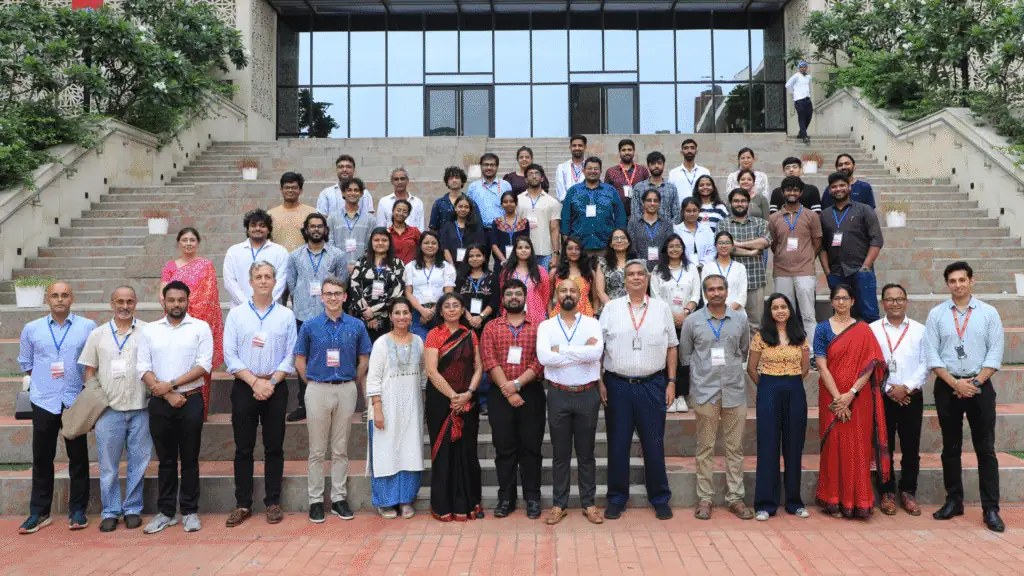Shaping the Next Generation of Biomedical Data Scientists: BDSA 2025 at Ashoka University
The Trivedi School of Biosciences at Ashoka University hosted BDSA 2025, a three-week programme equipping students with skills in biostatistics, genomics, and data science.
The Biomedical Data Summer Programme (BDSA 2025), hosted by the Trivedi School of Biosciences at Ashoka University in collaboration with Yale University, concluded successfully this August, marking a milestone in training the next generation of biomedical data scientists.
Modelled on Yale’s Big Data Summer Immersion and Michigan’s Big Data Summer Institute, the three-week programme was tailored to the Indian context. It brought together students from diverse academic backgrounds and immersed them in the world of biomedical data science, equipping them with both technical expertise and the experience of working on real-world datasets.
The mission of BDSA was to nurture a new generation of scientists who can combine biostatistical expertise with computational skills to transform biomedical data into actionable insights. Over its three weeks, the programme delivered on this vision through a carefully designed mix of lectures, bootcamps, and mentored projects, while also creating opportunities for collaboration and networking.
Programme Highlights
Orientation
The programme began on August 4, 2025, with an orientation session that introduced participants to the organising team and outlined the vision of BDSA. Students had the chance to meet their peers, learn about the research projects, and engage with the broader goals of the initiative.
Week 1:
Computational Bootcamp
The first week was dedicated to building a strong technical foundation. Through hands-on tutorials, participants were introduced to Unix, R programming, data manipulation and visualisation techniques. By the end of the bootcamp, students had acquired a shared set of computational skills, ensuring they were well-prepared to take on the more advanced sessions that followed.
Weeks 2 and 3:
Lecture Series
The mornings of the second and third weeks featured a rich lecture series delivered by faculty from Ashoka, Yale, Cornell, Cambridge, and other partner institutions. Topics ranged from biostatistics, genomics, epidemiology, biomedical imaging, and machine learning to digital health, data ethics, and science communication. Speakers included eminent researchers, including Dr Anurag Agrawal, Dr Gautam Menon, Dr Kasturi Mitra and Dr Dipankar Bhattacharya from Ashoka University, Dr Bhramar Mukherjee from Yale University, Dr Sumanta Basu from Cornell University, and Dr Sourav Sarkar from Cambridge University, among others. The lectures combined theoretical insights with applied case studies, exposing participants to the interdisciplinary possibilities of biomedical data science.
Mentored Research Projects
The afternoons were devoted to team-based research projects, where students applied their newly acquired skills to live biomedical datasets. Five projects were offered, spanning areas such as:
- Dietary Transcriptomics (Dr Sudipta Tung)
- Genetic Risk in Cardiovascular Disease (Dr Tanmoy Roychowdhury)
- Mitochondria and Cancer (Dr Kasturi Mitra)
- Early Life & Metabolic Health (Dr Geeta Trilok-Kumar, Dr Naveen Bhatraju, and Dr Yamini Gusain)
- Type 2 Diabetes and Cardiometabolic Health from EHR data (Dr Ambarish Pandey and Dr Rintu Kutum)

Final Symposium
The programme culminated in a student-led symposium on August 22. Teams presented the outcomes of their research to faculty and invited experts, showcasing their scientific approach, findings, and reflections on the collaborative process. The symposium also featured keynote addresses by Dr Partha P Majumder, National Science Chair, Science & Engineering Board, Government of India, who spoke on the role of genomics in reconstructing human history, and Dr Debasisa Mohanty, Director of the National Institute of Immunology.
Beyond the Classroom
BDSA was not limited to technical training. Networking events and professional development workshops – including sessions on science communication, career building and leadership – ensured that participants left with skills that will serve them well beyond the summer. The cohort also built strong peer connections, laying the groundwork for future collaborations in research and academia.
Way Forward
With its first cohort now completed, BDSA 2025 has set a strong precedent for immersive training in biomedical data science in India. By combining rigorous academic engagement with hands-on experience, the programme demonstrated how young scholars can be inspired to pursue careers in data-driven biomedical science.
As the biomedical sciences continue to evolve in an age defined by big data, initiatives like BDSA reaffirm Ashoka University’s commitment to advancing interdisciplinary education and global health research.
Study at Ashoka












